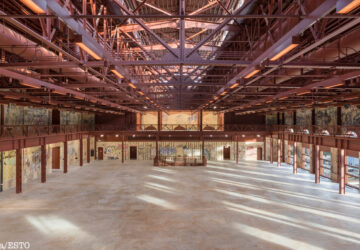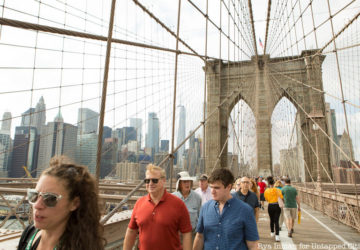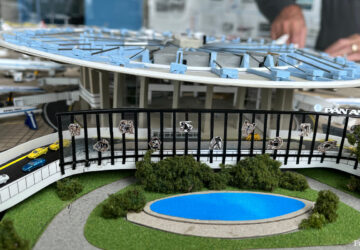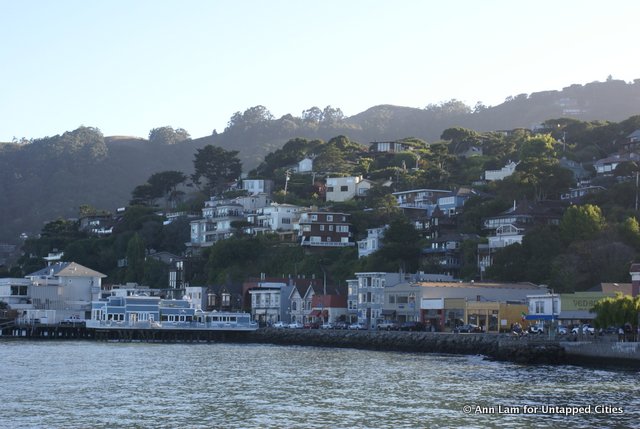
A perpetually sunny city just a Golden-Gate-Bridge length away from San Francisco, Sausalito is the ideal tourist destination. Rent-a-bike stalls near the Ferry Building and Fisherman’s Wharf advertise the scenic ride to the quaint artist enclave-a perfect half-day excursion. And every year over Labor Day weekend, tens of thousands of arts and craft enthusiasts descend upon the tiny community for the famous Sausalito Art Festival-more than tripling the population. My advice to would-be visitors: take advantage of Sausalito during the early summer (really just not around Labor Day weekend) and check out the waterfront communities-neighborhoods that consist of boats and people who prefer rolling waves over solid ground.
Whether you drive, bike, or ferry to Sausalito, chances are you’ll find yourself on Bridgeway, the main drag that runs along the shoreline. Art galleries and souvenir shops dominate the commercial scene. I tend to breeze through this touristy part of town, stopping by Venice Gourmet deli to pick up provisions for my urban exploration. The tasty sandwiches here are generous in size, and farther away from this part of town-closer to the docks and houseboats-there aren’t too many take-out food options.

Now a seemingly sedate locale, at the turn of the 20th century, Sausalito was a major transportation hub, the gateway to San Francisco via ferry service. Train passengers made their final stop in Sausalito and transferred to a ferry for the last leg of their trip. Beginning in 1920, the Golden Gate Ferry Company specialized in shuttling automobiles between Sausalito and San Francisco. However, the opening of the Golden Gate Bridge in 1937 led to the end of ferry service between Marin and San Francisco in March of 1941. (Traffic congestion on the Golden Gate Bridge eventually resulted in the reinstatement of the ferry system in the 1970s.)
During WWII Sausalito became a shipbuilding and repair center. After the war, the remnants of the industrial shipyards spawned the beginning of Sausalito’s eclectic modern houseboat community. Navy ships, from barges to tugboats, were turned into floating homes and communities that attracted artists and hippies in the 1950s and 1960s. One such community based around Galilee Harbor is less than a mile away from the current Sausalito Ferry Terminal.
Traveling northeast along Bridgeway, away from downtown Sausalito, traffic begins to thin out, and the squawking of seagulls replaces the chatter of tourists. The scenic Dunphy Park offers nice views of the Bay, and strangely fascinating public art hint at the idiosyncratic quality of houseboat ”˜hoods.

A member-run cooperative community, the Galilee Harbor Community Association is made up of artists and marine workers dedicated to the “preservation of Sausalito’s traditional working waterfront uses and creation of diverse public access opportunities.” The floating docks, wooden walkways and dirt paths around the harbor allow passersby to experience the natural marsh habitat and get a glimpse of “urban” houseboat community life. Every summer, the community hosts a celebratory Maritime Day, featuring houseboat tours and traditional boat-building demonstrations, among other family friendly events.



Nearby, the fancy Schoonmaker Point Marina caters to a different clientele. In contrast to the modest boats of Galilee Harbor, expensive yachts dock at this facility boasting a sandy beach, restaurants, and “21 palm trees.”


Side by side, these two waterfront communities paint very different views of life in Sausalito. While the Schoonmaker Point Marina boats seem a luxurious escapist pastime, the quirky residences of Galilee Harbor convey a salt-of-the-earth homeyness. The nice thing is that you, as a visitor, can pick which view would go best with your sandwich.
Follow Untapped Cities on Twitter and Facebook. Get in touch with the author @annylam81.







